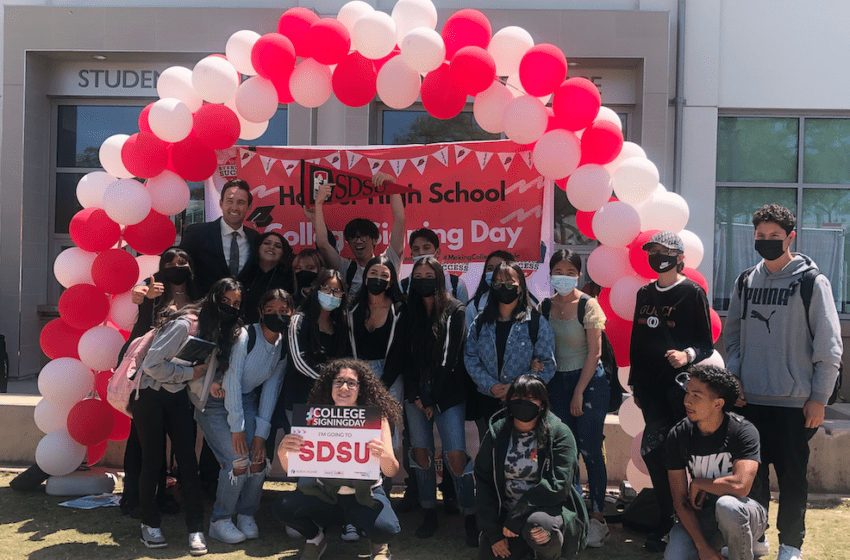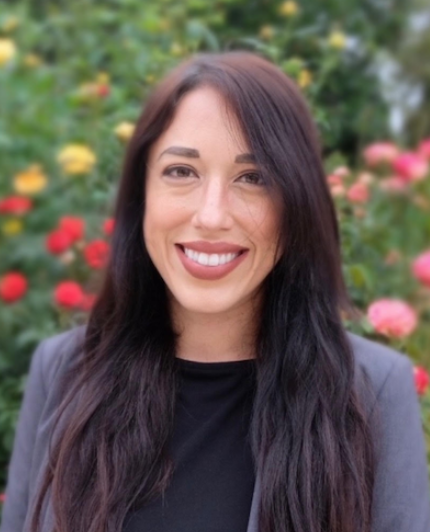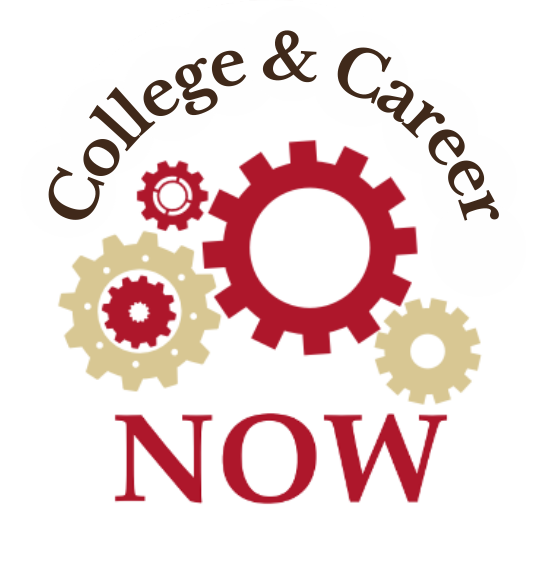
Building Student-Driven College & Career Access Programming- Part 1
Mercedes Albarran, M.S.
Director of College Persistence and Completion, Center for Equity and Postsecondary Attainment
Student persistence and retention has been a primary concern across all higher education institutions with many placing a priority on four year graduation rates and the initiatives to support these efforts. I have had the opportunity to contribute to the persistence and retention efforts over the last decade in specialized programs within the California State University (CSU) system supporting students from first generation, low-income backgrounds. In 2015, the CSU launched what is called Graduation Initiative 2025, “which is an ambitious plan to increase graduation rates, eliminate equity gaps in degree completion, and meet California’s workforce needs.”
Historically low income and underrepresented students have and continue to be considered “at-risk” for retention and persistence towards graduating with their degree. However, labeling these students as “at-risk” focuses on the deficit rather than the strength. It is not uncommon to hear college administrators discussing the need to identify better and more college ready students. They want students to come to college prepared to take on the rigors of a postsecondary education (McNair et al., 2016). However, too often higher education institutions measure college readiness based on White middle-class students as the dominant measure for academic and personal standards to determine if a student can succeed in pursuit of their college and life (Johnson, J., 2021). Despite the growth in enrollment of underserved student populations attending college, many underserved student groups continue to fall behind national averages in completing their degree (McNair et al., 2016). The vast majority of jobs require an education beyond high school. However, low income students are only half as likely as their higher income peers to earn a bachelor’s degree, even though obtaining this degree substantially increases their chances of moving out of poverty. (Lumina Foundation, 2015c). These trends show that there is an issue in the education system and pipeline to college.
The students of Hoover High School fall into this category of students. Hoover High School is located in the City Heights community of San Diego. Students from Hoover High School (up to the Class of 2024) have the opportunity to receive guaranteed admission to San Diego State University through what is called the College Avenue Compact. The College Avenue Compact is an agreement between SDSU and the San Diego Unified School District that guarantees students admission to SDSU upon completion of the admission requirements outlined in the College Avenue Compact. Hoover High School has a diverse student population with 98.6% underrepresented minority students and over 70% of students qualifying for free and reduced lunch. The College Avenue Compact agreement allows for more equitable college access. However, despite the many resources and college access programs available to support Hoover High School’s students in the college enrollment process for 2 and 4 year colleges, the Center for Equity and Postsecondary Attainment has collected data from its Class of 2014 seniors to find that only 10% of students were completing a degree or certificate in 4 years and only 19% were completing a degree or certificate in 6 years.

This data collected along with the collection of student voices from surveys distributed to the students of Hoover High School, sparked a need to create a college access program with a more holistic and student-driven framework that would include a persistence and career component. Therefore, a college access program was redesigned at Hoover High School to meet the needs of the students. This college access program is called Avenues for Success (AFS). AFS set out to learn from students about their postsecondary needs and aspirations for intentional student-centered program design and implementation. 963 students in grades 9th-11th were asked:
- Their plans after high school
- How much help they might need
- Interest in types of activities
- Participation in other clubs/programs and;
- Skills learned from their Hoover Academy
AFS is a comprehensive college and career access, persistence, and completion program servicing Hoover High School students, alumni, and their families. It serves students interested in gaining access to support with multiple pathways. There is a lesser focus on academics and more on the responsive needs of students. It no longer uses minimum GPA requirements for the program in order to be more inclusive and create equity amongst serving students in need of support.
The college access and enrollment programming works to support students and their families in the college and career going process with services that assist in:
- Identifying higher education options
- Completing college and financial aid applications
- Applying for scholarships
- Understanding financial aid awards
- Connecting with college campus resources
- Career exploration
- Providing resources on basic needs
In my position as Director of College and Persistence for the Center of Equity and Postsecondary Attainment (CEPA), I have been able to develop and expand programming to meet the needs in supporting Hoover High School alumni in persisting towards degree completion. Many colleges and universities do not have enough specialized support programs in place to meet the needs of every student being admitted to college. Especially for first generation undergraduate students from low-income and historically marginalized communities . This is resulting in higher institutions seeking the “ideal” college ready student instead of being responsive to the needs and concerns of all students admitted.
The college persistence programming for Hoover High School students has worked towards developing partnerships and liaisons within the local San Diego area. This has stemmed from the unique guaranteed admission agreement or memorandum of understanding (MOU) that Hoover High School has with SDSU, which has allowed for data sharing between Hoover High School and SDSU. This MOU with SDSU has allowed for greater access to current student contact information, detailed data reports, and the ability to track student progress and enrollment throughout the semester. This has allowed for preventative strategies to outreach and support students with course registration, academic probation, as well as re-engage students not enrolled at SDSU. Providing support to Hoover High School alumni attending SDSU has allowed for a more collaborative approach with the ability to support SDSU and the CSU’s Graduation Initiative 2025 by providing students with targeted outreach and proactive interventions.
Although MOUs are not established at all local San Diego colleges and universities, there are liaisons and partnerships being developed with campuses in hopes of developing and expanding MOUs at other campuses. Until those are developed, services to Hoover High School alumni have included:
- One on one advising and support with personal, academic, and professional goals
- Weekly text messaging and communication regarding campus events, registration and FAFSA renewal deadlines, professional development opportunities, and more
- Connection to campus resources and campus partners / liaisons
- Alumni social events and opportunities to serve on alumni student panels for current high schools students
- Field trips to college campus admit days
- Workshops and information sessions
The goal of AFS is to expand MOUs at other campuses and continue the expansion of career pathways to support students in building their social capital, centralizing support resources, and building a more equitable future as we strive to remove institutional barriers and create more inclusive college and career access and support.
Reference
McNair, T. B., Albertine, S., Cooper, M. A., McDonald, N. & Major, T. Thomas., M. (2016). Becoming a student-ready college: A new culture of leadership for student success. Somerset: Wiley.

Mercedes Albarran
Mercedes Albarran is the Director of College Persistence with the Center for Equity and Postsecondary Attainment and works with Avenues for Success and Hoover High School alumni to support their degree completion. She has been with SDSU since 2015 where she recently served as Counselor for the Educational Opportunity Program (EOP) and Ethnic Affairs, which supports first generation, low-income, and historically underserved college students. In addition, Mercedes previously served as the Academic Advisor for Compact Scholars and Academic Student Success Programs where she advised both Compact Scholars from Sweetwater Union High School District (SUHSD) and freshmen commuter students at SDSU. Mercedes has over a decade of experience working as a professional advocate for student success with diverse students in various educational settings including early childhood education, the K-12 sector, and in higher education. Her interests align with her experience in developing data driven retention strategies to support the needs of historically marginalized students in persisting toward degree completion in higher education. She is an alumna of San Diego State University and holds a Bachelor of Science degree in Child and Family Development from SDSU and a Master of Science degree in Educational Counseling with a Pupil Personnel Services (PPS) Credential from the University of La Verne. Mercedes has a passion for diversity, equity, and inclusion in an educational setting. She is committed to working with students holistically and is dedicated to providing guidance and support to students in reaching their educational and career goals.
